When nearly 77 percent of your city’s business owners aren’t able to grow enough to have even one employee (besides the owner), it shouldn’t be too surprising that 40 percent of your population lives below the federal poverty line of $24,339 for a family of four, including 57 percent of the children in your city.
That’s part of the challenge facing Detroit, laid out in a new report, “139 Square Miles,” from the nonprofit Detroit Future City. The report claims to be the first, comprehensive, citywide, data-driven study on the state of Detroit “without analysis or critique.” It compiles quantitative and spatial data from a variety of sources, including the U.S. Census Bureau’s Survey of Business Owners, which is conducted every five years.
Based on Census Bureau data, the report notes that just 2 percent of black-owned businesses have at least one employee besides the owner, compared to 39 percent of white-owned Detroit businesses with at least one employee besides the owner. The same Census Bureau data shows that black entrepreneurs account for 77 percent of all Detroit business owners.
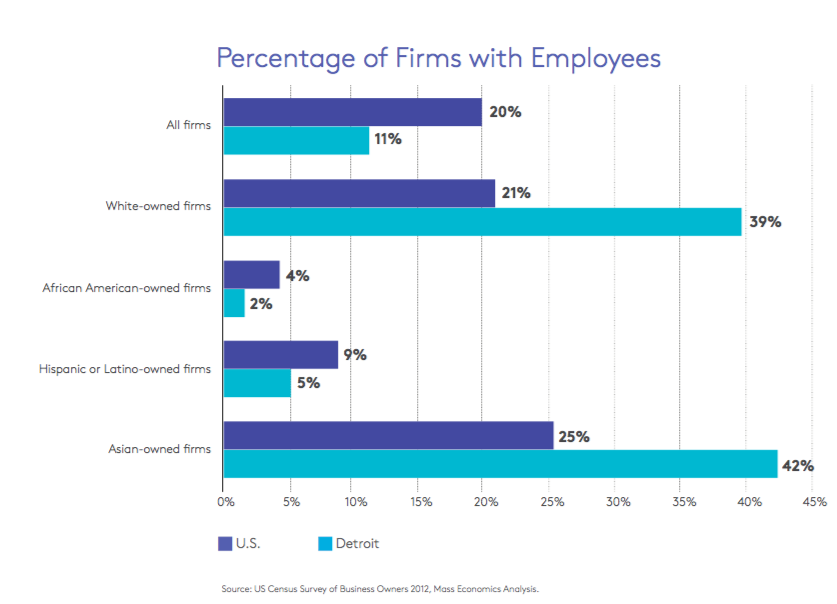
(Credit: Detroit Future City)
Of course, it’s impossible to boil down a city’s economic reality just to the state of its small businesses or any other single factor or map. 139 Square Miles also makes note of racial and economic disparities in geography. While Detroit city proper (population 672,000) is 80 percent black, the Detroit metro area (population 4.2 million) is 22 percent black and 67 percent white.
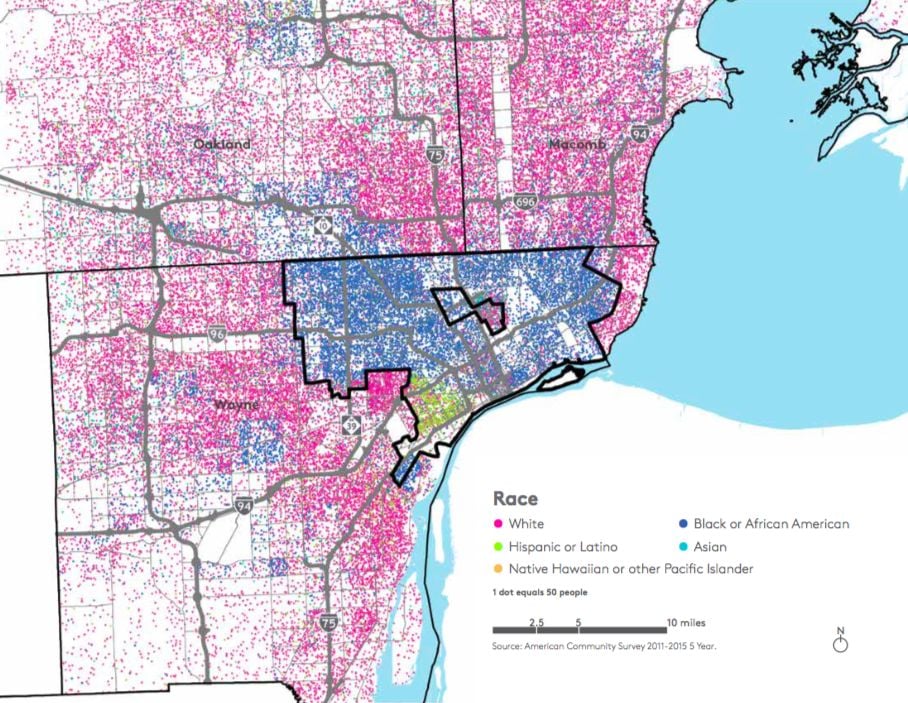
(Credit: Detroit Future City)
The black population and the population living below the poverty line are both concentrated in Detroit city proper — 53 percent of Detroit residents live in “areas of concentrated poverty,” typically defined as census tracts with a poverty rate of 40 percent or more, the report notes.
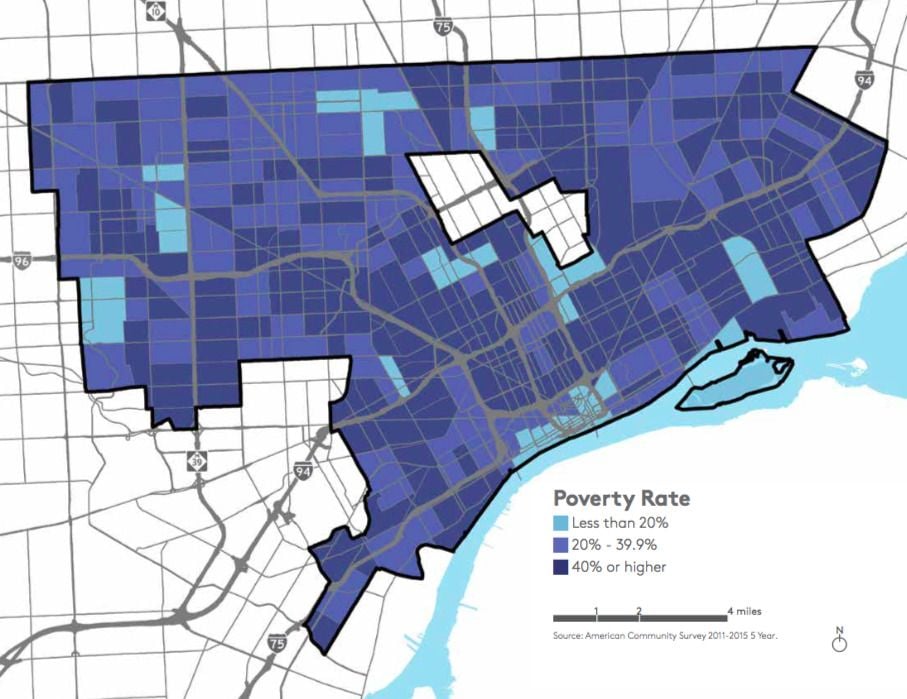
(Credit: Detroit Future City)
According to the report, there are about 238,400 jobs within Detroit’s city limits. Of those, 206,800 are in the private sector and 31,600 are in the public sector. Of those in the private sector, 18 percent pay less than $15,000 a year, 30 percent pay between $15,000 and $40,000, and 51 percent pay more than $40,000. Private sector job growth grew 17 percent from 2010 to 2016, slightly ahead of the U.S. at 16 percent over the same period.
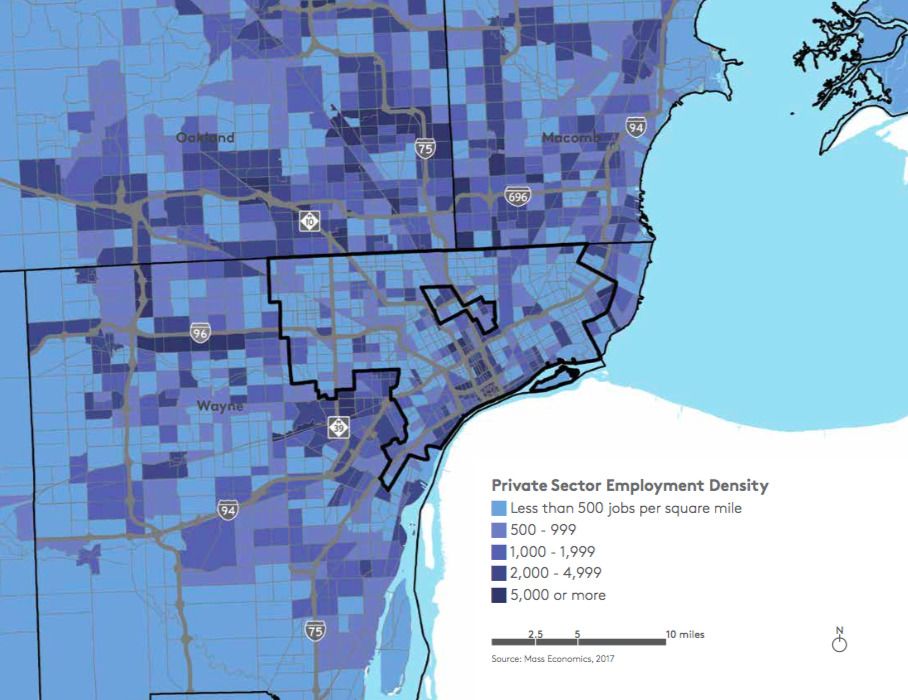
(Credit: Detroit Future City)
Even with the recent job growth, the report found that Detroit still only has 30 jobs per 100 residents (though that’s up from 25 per 100 in 2010). Among the jobs that are inside Detroit, well-paying jobs tend to be held by workers who live in the suburbs and commute into the city for work, while many Detroiters leave the city for low-paying jobs outside the city. An estimated 158,000 commuters come into the city for work, 59 percent of whom earn more than $40,000 a year. Meanwhile, an estimated 112,000 Detroiters leave the city for work, 36 percent of whom earn $15,000 a year or less. Only about 30 percent of employed Detroit residents, around 49,000 people, both live and work in Detroit, according to the report.
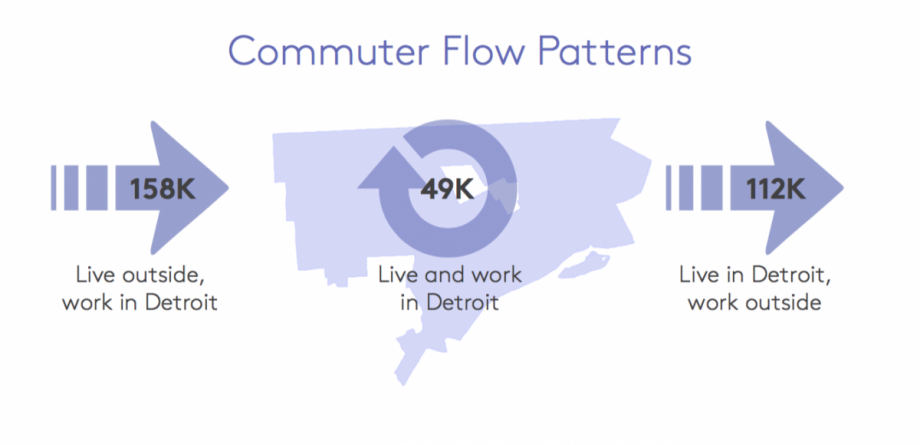
(Credit: Detroit Future City)
The Detroit Free Press writes that some of the data points in 139 Square Miles underscore the financial crisis facing Detroiters, such as the 37 percent of city renters who spend more than half their income on housing. Other stats also surprised the Free Press, such as the 69 percent of Detroit-area commuters who drive to work alone.
There is one metric whose trend cuts across all racial lines: Median household income has fallen in inflation-adjusted terms for white, black and Hispanic households. The fall has been slightly steeper for black households.
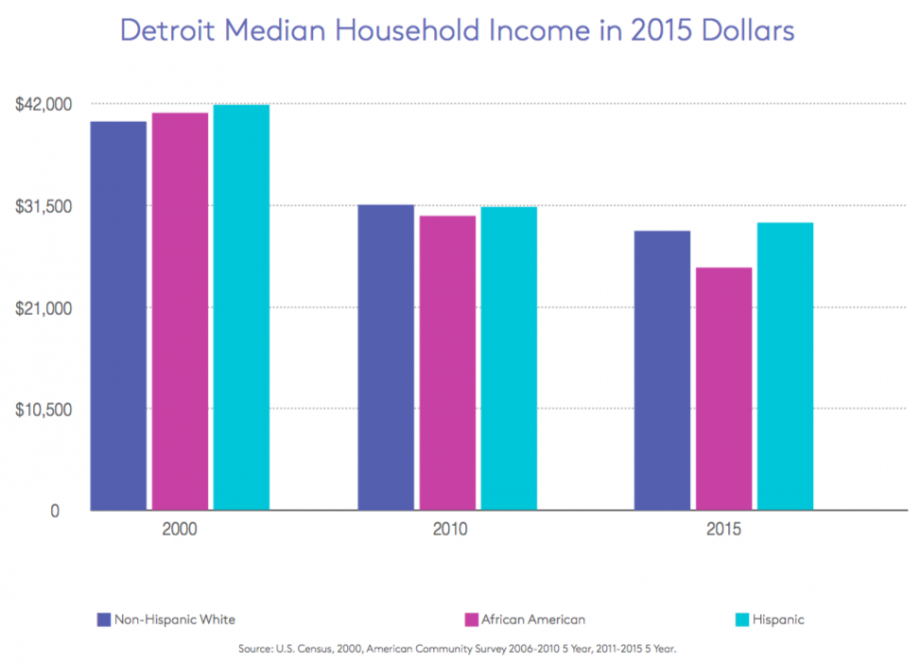
(Credit: Detroit Future City)
“Numbers, of course, only get us so far,” wrote the Free Press’ John Gallagher. “Detroiters still face hard choices about where to invest limited resources, how to spread the progress downtown to the neighborhoods, and similar tough questions.”

Oscar is Next City's senior economic justice correspondent. He previously served as Next City’s editor from 2018-2019, and was a Next City Equitable Cities Fellow from 2015-2016. Since 2011, Oscar has covered community development finance, community banking, impact investing, economic development, housing and more for media outlets such as Shelterforce, B Magazine, Impact Alpha and Fast Company.
Follow Oscar .(JavaScript must be enabled to view this email address)






_600_350_80_s_c1.JPEG)








